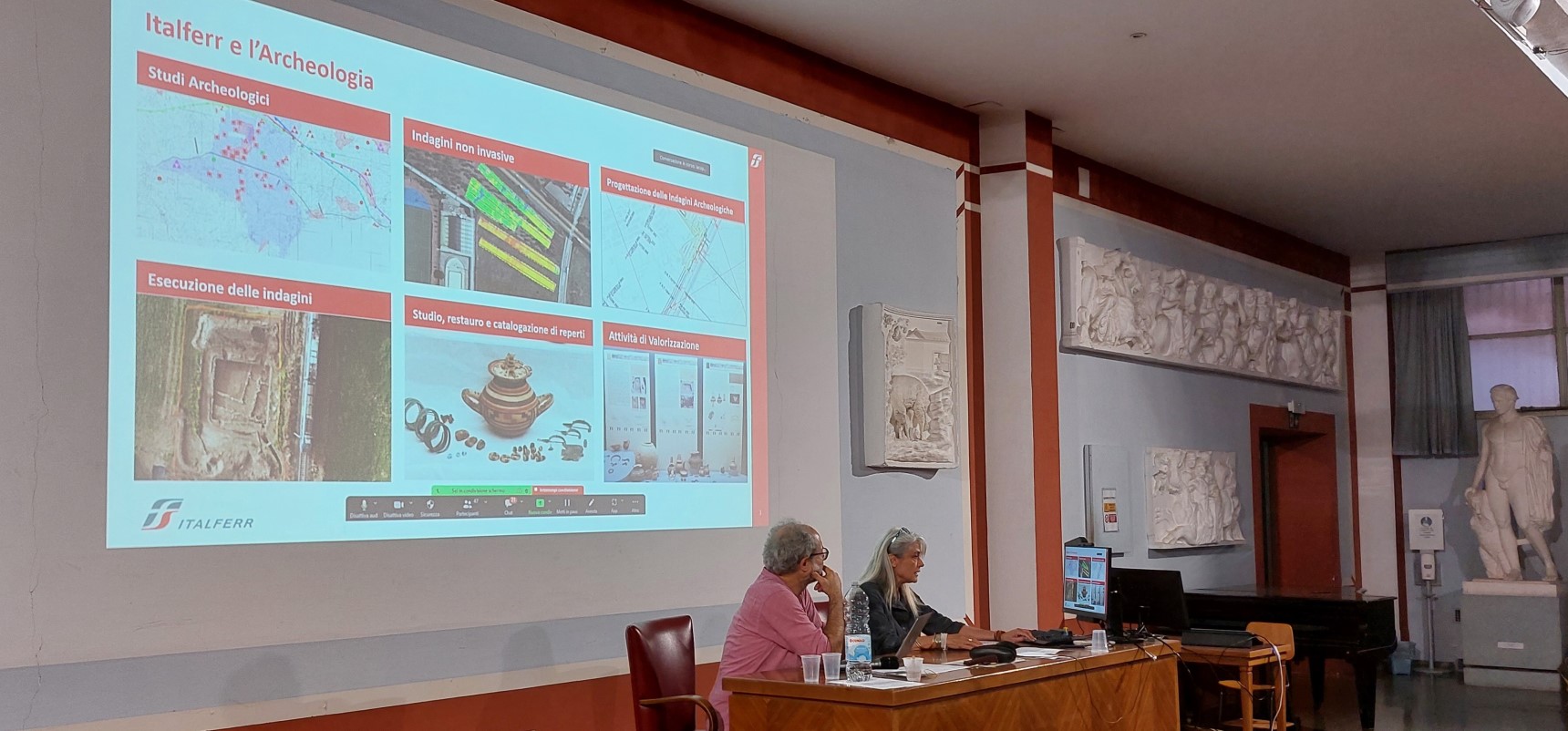The design of large-sized railway infrastructure under the banner of preventive archaeology
Italferr among the participants at the 'Preventive Archaeology Standards, Practice and Teaching' conference

Italferr, which has been involved in the field of preventive archaeology since 2006, recognises the importance of reconciling the development of infrastructure with the protection of cultural heritage, contributing significantly to the enhancement and conservation of the archaeological heritage.
The participation of Italferr's Archaeology Department in the conference 'Preventive Archaeology Standards, Practice and Teaching', held on 10 July at ‘La Sapienza’ University in the Odeion Hall of the Museum of Classical Art, is part of this approach.
The event represented an important opportunity for coordination and collaboration between institutions, contracting and archaeological companies, as well as professional associations, with a view to promote dialogue and growth in archeology without losing focus on prevention.
At the meeting, attended by key players in the sector, including the General Directorate of Archaeology, Fine Arts and Landscape and the Central Institute for Archaeology of the Ministry of Culture, as well as several territorial superintendencies, companies and associations in the archaeological sector, the important role of preventive archaeology was reaffirmed.
During the event, the head of Italferr's Archaeology department, Francesca Frandi, gave a speech entitled 'Preventive Verification of Archaeological Interest applied to the design of large-sized railway infrastructure', illustrating the company's well-established commitment to integrating archaeology as an indispensable element in the design process.
The engineering company of the FS Group's Infrastructure Hub thus reaffirms the importance of reconciling the development of infrastructure with the protection of cultural heritage, contributing significantly to the valorisation and conservation of the archaeological heritage.
Italferr is actively pursuing its commitment to promoting dialogue and cooperation between the various stakeholders, supporting preventive archaeology as a fundamental practice for the realisation of sustainable infrastructure projects that respect the cultural heritage.